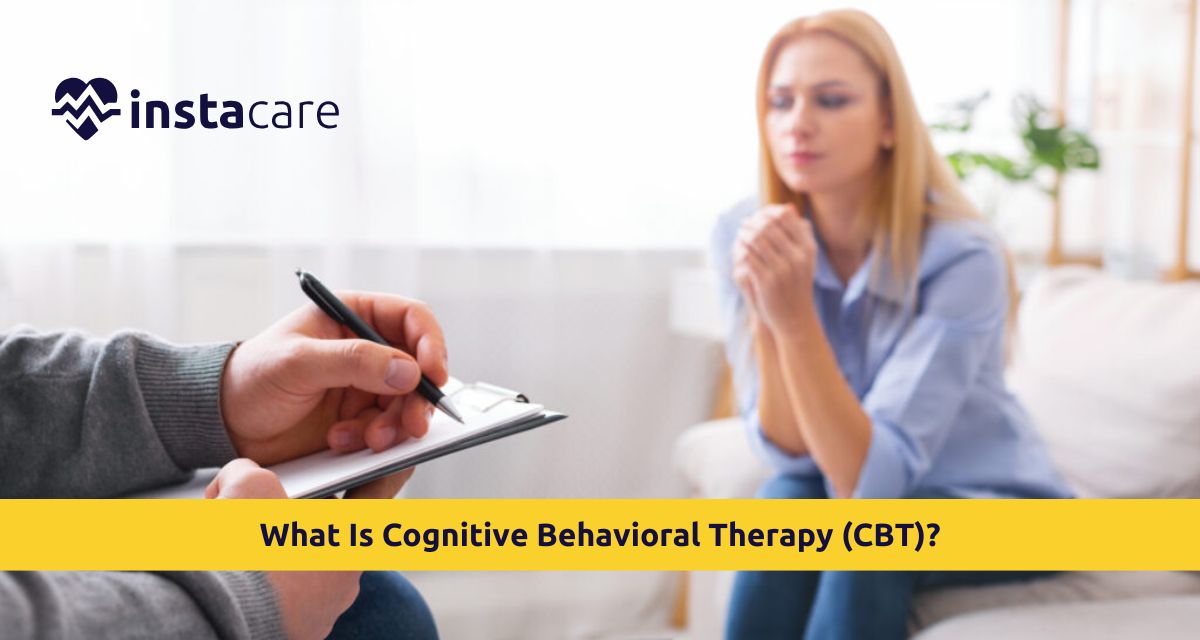CBT functions as a widespread psychotherapeutic treatment because medical practitioners successfully diagnose multiple mental health problems with the help of its effectiveness to transform unhealthy behavioral habits and thinking patterns. CBT functions as a treatment method for anxiety as well as depression, PTSD, OCD, and multiple other psychological disorders. CBT is predicated on the here-and-now thought and behavior and enables individuals to acquire more constructive means of coping and become better adjusted overall.
How CBT Works
It works by presuming that cognition, emotion, and behaviour tend to go together. Distorted thought patterns acquired in the past can become so automatic as to lead to undesirable behaviour and inner distress. CBT helps one recognize such patterns and replace them with health-fostering action and thinking.
Key Features of CBT:
- Identification of unprofitable thought habits
- Cancellation and reconsideration of risky beliefs
- Acquisition of healthy coping skills
- Practice of the behaviour change
- Use of formal exercises to have good thoughts
- Learning problem-solving skills to deal with difficult issues
- Acquiring self-knowledge and emotional intelligence
CBT is formal and intentional, and it can be followed up in the long term. It offers a supporting and formal means of dealing with problems of mental disorders.
Benefits of Cognitive Behavioral Therapy
CBT can heal most of the sicknesses of the mind. Some of the Benefits of Cognitive Behavioral Therapy are:
- Improved Emotional Control: Enables one to control emotions more effectively.
- Improved Coping: Enables one to cope with anxiety and stress more effectively.
- Practical and Solution-Focused: Grounded in actual solutions and actual problems.
- Briefness of Treatment: Short compared to other treatments in most cases.
- Effectiveness: Contains vast quantities of research evidence for a vast spread of disorders.
- Enables Self-Care: Shows people how to look after their mental health.
- Decreases Recurrence Rate: Prevents future recurrence of depression or anxiety.
Understand Cognitive Behavioral Therapy Against Various Health Conditions
Cognitive Behavioral Therapy for Anxiety
Restlessness and excessive worrying are common among patients with anxiety disorders. In this case, Cognitive Behavioral Therapy for Anxiety is helpful in the identification of the stimuli, calling excessive fear irrational, and relaxation education. Exposure therapy, which is one of the CBT tools, is useful in gradually exposing the patient step by step to whatever they fear in an attempt to build resistance.
Cognitive Behavioral Therapy for Depression
Depression also exists in the pattern of extreme sadness and indifference in daily activities. Cognitive Behavioral Therapy for Depression accomplishes this through replacing pessimism about the self with optimism, induction to take part in a rewarding activity, and realistic goals. CBT increases motivation and creates a wonderful general mood.
In Cognitive Behavioral Therapy for depression, one of the fundamental activities called activity scheduling asks patients to participate in tasks that combat feelings of hopelessness.
Cognitive Behavioral Therapy for PTSD
PTSD develops after a traumatic incident through flashbacks and emotional distress, causing emotional numbing in the individual. The person learns more appropriate responses through trauma-focused treatment coupled with CBT processes their experiences through cognitive restructuring.
Exposure-based therapy stands as the major implementation of Cognitive Behavioral Therapy for PTSD because patients experience controlled sessions with traumatic memories to reduce emotional intensity.
Cognitive Behavior Treatment of Insomnia
CBT-I is a very effective treatment for insomnia. Cognitive Behavioral Therapy for Insomnia is founded on:
- Sleep Restriction Therapy: Reduction of bedtime in an effort to maximize the efficacy of sleep.
- Stimulus Control: Bed conditioning for sleeping alone.
- Relaxation Techniques: Relaxation induction by mind awareness and meditation.
- Cognitive Treatment: Gradual Reduction of Fear of Sleeping.
- Normal Development of Sleep Patterns: Facilitation of normal sleep patterns.
- Reducing Evening Screen Time and Caffeine: Reducing screen time in the evenings and caffeine.
CBT-I is an incredibly effective, medication-free therapy for delayed-onset insomnia.
Cognitive Behavioral Therapy of Obsessive-Compulsive Disorder
The mental health condition, Obsessive-Compulsive Disorder, contains automatic unwanted thoughts and compulsive, recurring actions. The practice of ERP exposure during Cognitive Behavioral Therapy makes OCD patients face their anxiety triggers while preventing compulsive behaviors to achieve enduring tolerance.
ERP therapy is all about exposing the patient to the object or the situation for which the patient is afraid and combating the urge to do the compulsive act. Hence, the patient gains control over his/her actions.
Cognitive Behavioural Therapy for Stress Management
Stress damages mental as well as physical health. Cognitive Behavioral Therapy for Stress Management teaches one how to handle stress healthily with cognitive restructuring, relaxation, and improved problem-solving ability.
- Practice of deep breathing exercises
- Daily planner schedule
- Effective time management skills
- Positive self-talk
- Application of a relaxation technique like progressive muscle relaxation
- Cognitive restructuring of stressful experience in a positive way
Cognitive Behavioural Therapy for Recovery from Addiction
Cognitive Behavioral Therapy (CBT) is applied on a broad level in recovery from addiction for the purpose of regaining recognition of cues, acquiring coping skills, and relapse prevention. CBT enables the addict to change interactions with the drug of addiction and behavior positively through effective decision-making.
Cognitive Behavioral Therapy for Addiction Recovery delivers three essential components that center around self-regulation, emotional regulation, and cognitive restructuring as methods to avoid substance abuse.
Cognitive Behavioral Therapy and Mindfulness
Cognitive Behavioral Therapy and Mindfulness are mostly used together. Mindfulness-based CBT (MBCT) includes meditation and mindfulness practice of being in the here and now in an attempt to make the patients free from the pattern of negative thinking. It is very effective in treating
depression and anxiety disorders.
By the practice of mindfulness, thoughts can be watched without judgment, hence dismantling the influence of negative thinking.
Cognitive Behavioral Therapy v/s Medicine - What’s Best?
The difference between Cognitive Behavioral Therapy vs Medication is that, though the medicine cures only the symptoms, CBT cures the causes of the problem in the case of mental illness. Though the drug can be prescribed for a lifetime, CBT educates the coping skills for a lifetime and thus stands first in the case of mental wellness improvement for a long duration.
Medication can be supplemented by cognitive behavioral therapy (CBT) to some extent, but in the majority of patients, CBT is sufficient to control the symptoms properly.
Conclusion
CBT makes people attain better mental health as it assists one to overcome negative thinking. CBT offers helpful methods of cognitive regulation in any case of the disorder, whether it is depression, anxiety, PTSD, insomnia, or addiction. Clients learn such techniques of CBT and practice them in their routine to experience a constant improvement in their health.
Please book an appointment with the
best Psychologist in Lahore, Karachi, Islamabad, and all major cities of Pakistan through
InstaCare, or call our helpline at 03171777509 to find a verified doctor for your disease.












